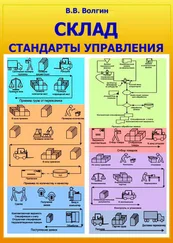Более подробно о принципе редкости см. замечательную книгу Robert Cialdini, Influence: The Psychology of Persuasion (New York: HarperBusiness, rev. ed., 2006).
Личное общение и электронная переписка с Робертом Чалдини об объединенном эффекте принципов социального одобрения и авторитета.
Barry Schwartz, The Paradox of Choice: Why More Is Less (New York: Harper-Collins, 2005).
Ibid.
D. R. Carney, A. J. C. Cuddy, and A. J. Yap, «Power Posing: Brief Nonverbal Displays Affect Neuroendocrine Levels and Risk Tolerance», Psychological Science OnlineFirst, September 21, 2010.
Бенсон — почетный директор Института Бенсона‒Генри и профессор медицины разума и тела Гарвардской медицинской школы.
В результате были выявлены значительные изменения в экспрессии нескольких важных генов у людей, достаточно долго занимающихся медитацией, по сравнению с новичками. Самые заметные перемены обнаружились у тех, кто занимался медитацией более 10 лет. Manoj K. Bhasin, Jeffery A. Dusek, Bei-Hung Chang, Marie G. Joseph, John W. Denninger, Gregory L. Fricchione, Herbert Benson, and Towia A. Libermann, «Relaxation Response Induces Temporal Transcriptome Changes in Energy Metabolism, Insulin Secretion and Inflammatory Pathways», PLoS One 8, no. 5 (2013): e62817.
R. A. Emmons and A. Mishra, «Why Gratitude Enhances Well-Being: What We Know, What We Need to Know», in Designing Positive Psychology: Taking Stock and Moving Forward, ed. K. Sheldon, T. Kashdan and M. F. Steger (New York: Oxford University Press, 2011), 248–58; R. A. Emmons, «Gratitude», in Encyclopedia of Positive Psychology, ed. S. J. Lopez and A. Beauchamp (New York: Oxford University Press, 2009), 442–47.
Robert A. Emmons, PhD, Thanks! How Practicing Gratitude Can Make You Happier (New York: Houghton Mifflin, 2007); Alex M. Wood, John Maltby, Raphael Gillett, P. Alex Linley, and Stephen Joseph, «The Role of Gratitude in the Development of Social Support, Stress, and Depression: Two Longitudinal Studies», Journal of Research in Personality 42, no. 4 (August 2008): 854–71.
Более подробно об этом см. книгу Оливии: The Charisma Myth (New York: Portfolio, 2012).
Roy F. Baumeister and Brad J. Bushman, Social Psychology and Human Nature (Boston: Cengage Learning, 2014), 196; P. Brickman, R. Janoff-Bulman, and D. Coates, «Lottery Winners and Accident Victims: Is Happiness Relative?» Journal of Personality and Social Psychology 36, no. 8 (1978), 917–27.
George Hill, the Story Corps Project, storycorps.org/listen/george-hill.
Andrew Hunt, Pragmatic Thinking and Learning: Refactor Your Wetware (Raleigh, N.C.: Pragmatic Bookshelf, rev. ed. 2010).
Cialdini, Influence; B. J. Sagarin, R. B. Cialdini, W. E. Rice, and S. B. Serna, «Dispelling the Illusion of Invulnerability: The Motivations and Mechanisms of Resistance to Persuasion», Journal of Personality and Social Psychology 83, no. 3 (2002): 526–41.
Hunt, Pragmatic Thinking and Learning.
Bill Bryson, A Short History of Nearly Everything. (New York: Broadway Books, 2004): 11.
Darya L. Zabellina and Michael D. Robinson, «Don’t Be So Hard on Yourself: Self-Compassion Facilitates Creative Originality Among Self-Judgmental Individuals», Creativity Research Journal 22, no. 3 (2010): 288–93.
Беседы с доктором Джоанн Далькеттер, 2014–2015 годы.
K. D. Neff, «Self-Compassion», in Handbook of Individual Differences in Social Behavior, ed. M. R. Leary and R. H. Hoyle (New York: Guilford Press, 2009): 561–73.
K. D. Neff, «Self-Compassion, Self-Esteem, and Well-Being», Social and Personality Compass 5 (2011): 1–12; K. D. Ne and P. McGeehee, «Self-Compassion and Psychological Resilience among Adolescents and Young Adults», Self and Identity 9 (2010): 225–40; K. D. Neff, K. Kirkpatrick, and S. S. Rude, «Self-Compassion and Its Link to Adaptive Psychological Functioning», Journal of Research in Personality 41 (2007): 139–54.
K. D. Neff, «Self-Compassion.»
Ibid. Самосострадание деактивирует систему реакции на угрозу (которая порождает чувства страха, незащищенности, стимулирует оборонительное поведение) и активирует систему успокоения.
T. Barnhofer, T. Chittka, H. Nightingale, C. Visser, and C. Crane, «State Effects of Two Forms of Meditation on Prefrontal EEG Asymmetry in Previously Depressed Individuals», Mindfulness 1, no. 1 (2010): 21–27; T. Barnhofer, D. Duggan, C. Crane, S. Hepburn, M. J. Fennell, and J. M. Williams, «Effects of Meditation on Frontal Alpha-Asymmetry in Previously Suicidal Individuals», NeuroReport 18, no. 7 (2007): 709–12; B. R. Cahn and J. Polich, «Meditation States and Traits: EEG, ERP, and Neuroimaging Studies», Psychological Bulletin 132, no. 2 (2006): 180–211; G. Feldman, J. Greeson, and J. Senville, «Differential Effects of Mindful Breathing, Progressive Muscle Relaxation, and Loving-Kindness Meditation on Decentering and Negative Reactions to Repetitive Thoughts», Behaviour Research and Therapy 48, no. 10 (2010): 1002–11; A. Manna, A. Raffone, M. G. Perrucci, D. Nardo, A. Ferretti, A. Tartaro, et al., «Neural Correlates of Focused Attention and Cognitive Monitoring in Meditation», Brain Research Bulletin 82, nos. 1–2 (2010): 46–56.
Christopher K. Germer, The Mindful Path to Self-Compassion (New York: Guilford Press, 2009).
Paul Gilbert, Mark W. Baldwin, Chris Irons, Jodene R. Baccus, and Michelle Palmer, «Self-Criticism and Self-Warmth: An Imagery Study Exploring Their Relation to Depression», Journal of Cognitive Psychotherapy 20, no. 2 (2006): 183–200.
James J. Gross, «Emotion Regulation: Affective, Cognitive, and Social Consequences», Psychophysiology 39, no. 3 (May 2002): 281–9.
Ibid., 289.
Carol Dweck, Mindset: The New Psychology of Success (New York: Ballantine, 2006).
Твит Илона Маска: «Ракета смогла автоматически вернуться на корабль, но посадка оказалась жесткой. Близко, но закуривать сигару пока рано. Однако это хорошее предзнаменование на будущее». 10 января 2015 года.
Беседа с Астро Теллером, март 2014 года.
Читать дальше
Конец ознакомительного отрывка
Купить книгу












